Iran’s supreme leader has accused Israel of starting a war with its unprecedented attack, warning Tehran will “show no mercy”.
Ayatollah Ali Khamenei warned Israel had made a “grave error” that would bring them “to ruin”, as Iranian missiles lit up the skies above Israeli cities on Friday night.
“They are the ones who have started this and have begun a war,” he said. “We will show them no mercy. Life will definitely become bitter for them.”
The supreme leader’s warning comes after Benjamin Netanyahu launched “Operation Rising Lion” in the early hours of Friday (13 June) with Israel’s largest-ever salvo on Tehran’s nuclear and ballistic missile facilities—attacks that also wiped out many of Iran’s most senior military commanders.
The Israeli military said it struck over 200 targets in total – with a second round of strikes repeated on Friday evening – including on Iran’s sprawling underground nuclear facility at Natanz. Israel and Iran separately confirmed that the barrage killed some of Iran’s highest-ranking officers, including Chief of Staff General Mohamed Bagheri and Hossein Salami, the leader of the powerful Revolutionary Guards .
Netanyahu has warned that “more is on the way,” and, in a direct appeal to the Iranian people, appeared to incite them to rise up against their leaders.
“The regime does not know what hit them, or what will hit them. It has never been weaker,” he said. “This is your opportunity to stand up and let your voices be heard.”
The shock confrontation between the arch foes that has ignited fears of a Middle East-wide conflict in a region already on a knife edge.
Iran said six prominent nuclear scientists and several of its most senior commanders were killed during Israel’s strikes, including the head of Iran’s Revolutionary Guards, the armed forces’ chief of staff, and the army’s deputy commander-in-chief, Gholamali Rashid. Israel also claimed it “eliminated” the commanders of Iran’s air force and drone forces.
Iran’s United Nations envoy said in total 78 people were killed and more than 320 injured most of them civilians.
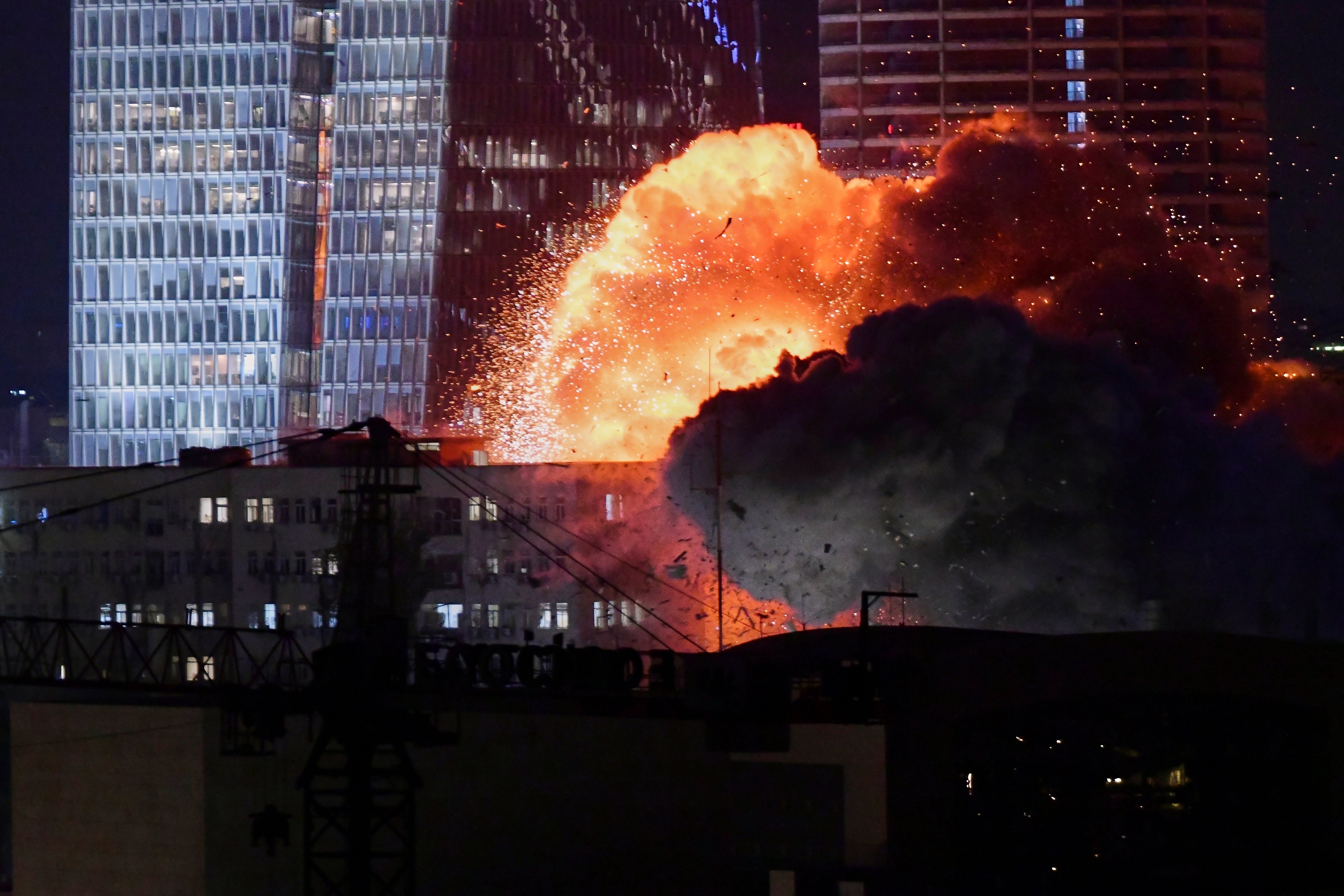
The daring offensive allegedly saw Mossad operatives deep within Iranian territory conduct a series of covert sabotage missions targeting the country’s air defence systems, including by building a drone base near Tehran, security sources told Israeli media.
Tehran has responded by launching two salvos at Israel, with the latest on Friday evening lighting up the skies above cities including Tel Aviv.
Iran’s state media agency IRNA said Iran launched “hundreds” of ballistic missiles at Israel in retaliation. But Israeli military sought to downplay the response, saying two barrages of surface-to-surface missiles were launched amounting to “fewer than 100” projectiles.
“Most were intercepted by air defence systems or failed to reach their targets,” it added.
The Israeli military has called its operation in Iran “pre-emptive,” claiming it had been forced to act by new intelligence showing that Iran was “approaching the point of no return” in the development of a nuclear weapon.
However, a source familiar with US intelligence reports said there had been no recent change in Washington’s assessment that Iran was not building a nuclear weapon and that Ayatollah Khamenei had not authorised a resumption of the programme halted in 2003.
Israel – that has long fought a shadow war with Iran – has made it repeatedly clear its intentions to wipe out Iran’s nuclear capability. While Iran insists its nuclear programme is intended merely for energy purposes, Tehran’s leadership has repeatedly called Israel a “cancer” in the Middle East.
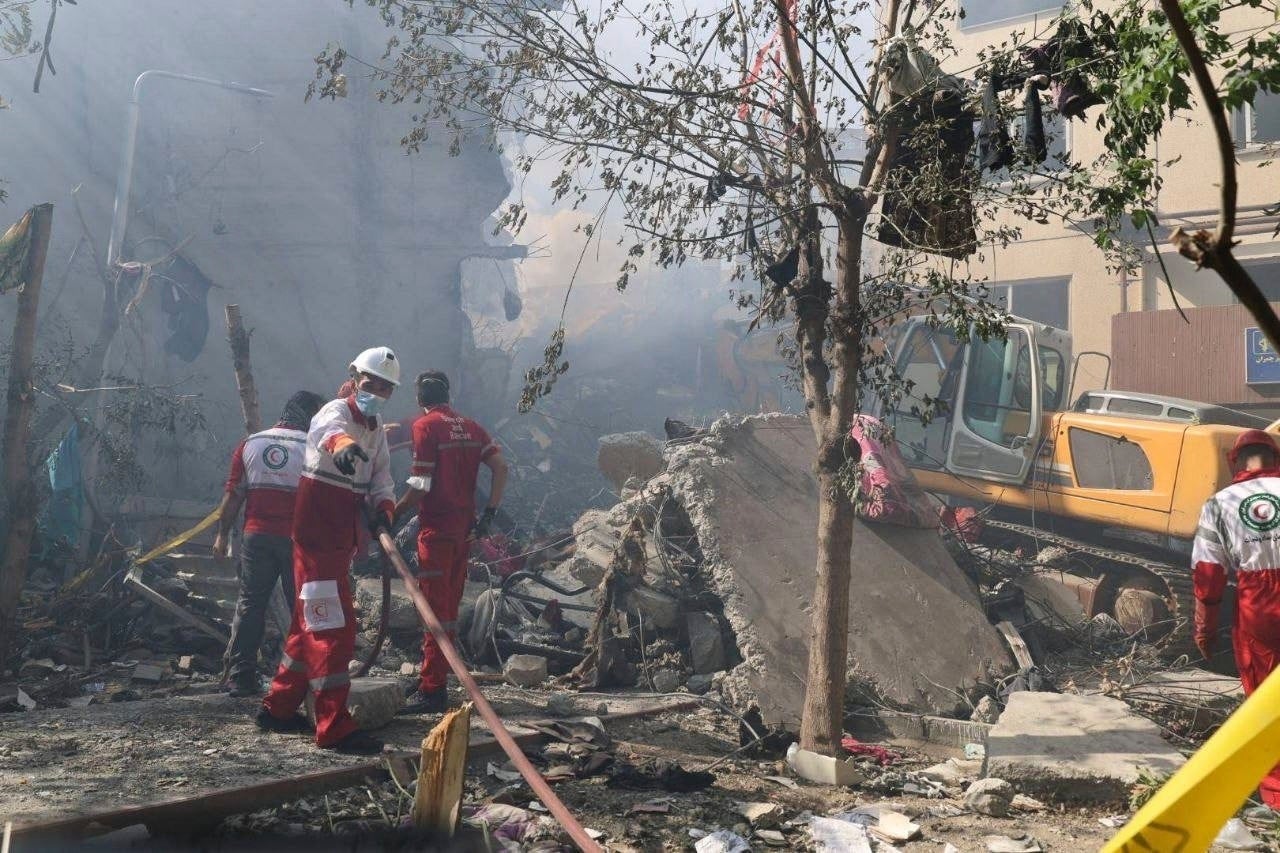
The US administration initially distanced itself from the operation by saying Israel took “unilateral action against Iran”. Later President Donald Trump, issued his own stark warning to Tehran, saying it must make a nuclear deal now or face “slaughter.”
Washington had been expected to hold a sixth round of negotiations with Iran on Sunday in Oman over Tehran’s rapidly advancing nuclear programme – talks which will likely not go ahead now.
“I gave Iran chance after chance to make a deal,” Trump said Friday morning. “There has already been great death and destruction, but there is still time to make this slaughter, with the next already planned attacks being even more brutal, come to an end. Iran must make a deal, before there is nothing left.”
Both the US and UK denied involvement in the Israeli strikes—although US officials later told Reuters that US military ground-based systems helped shoot down Iranian missiles aimed at Israel.
While Prime Minister Keir Starmer convened an emergency COBRA meeting and urged restraint, Trump labelled the Israeli attack “excellent” and claimed Washington had been informed beforehand.
“We gave them a chance [to strike a nuclear deal] and they didn’t take it,” he said. “They got hit hard—very hard. They got hit about as hard as you’re going to get hit. And there’s more to come. A lot more.”
“We knew everything, and I tried to save Iran humiliation and death. I tried very hard because I would have loved to have seen a deal worked out. They can still work out a deal—it’s not too late.”
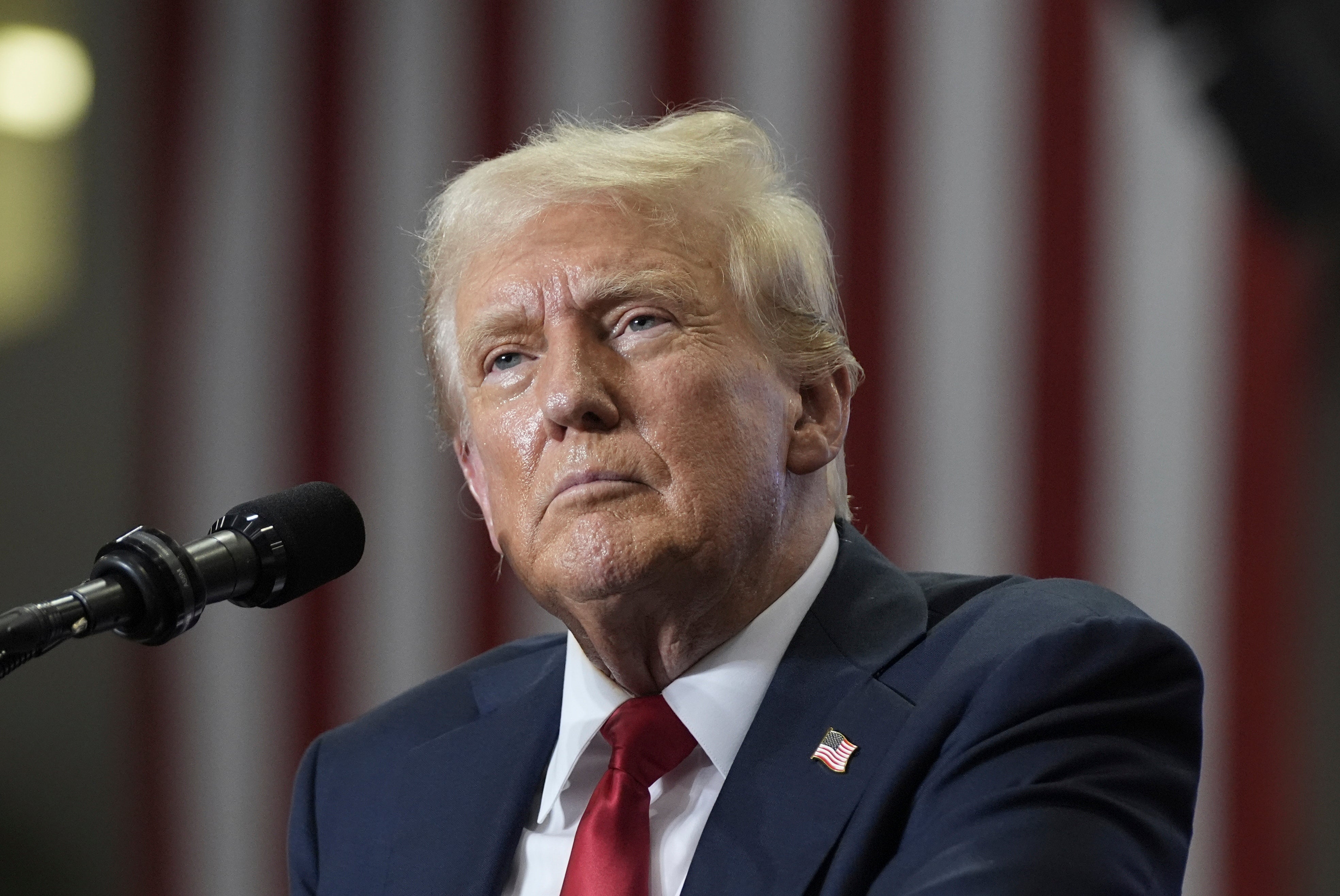
There are concerns the conflict could spark a regional war, with the Middle East already a tinderbox after 20 months of Israel’s unprecedented bombardment of Gaza, which followed the 7 October 2023 attack by Iranian-backed Hamas. During that time, Israel has also decimated Iran-backed militant group Hezbollah in Lebanon and traded fire with the Houthis in Yemen, again Tehran’s lay, who had been targeting Gulf shipping in retaliation for the Gaza war.
One fear is that the confrontation could ignite fighting between the region’s most powerful militaries and armed factions, risking wider destabilisation.
Iran’s Defence Minister Aziz Nasirzadeh warned on Wednesday that if attacked, Tehran would retaliate by hitting US bases in the region .
Acknowledging the heightened risk, the US on Wednesday announced the partial closure of its embassy in Baghdad and authorised the “voluntary departure” of military dependents from bases in Bahrain and Kuwait.
In Baghdad, Sajad Jiyad, an Iraqi analyst fellow at Century International, said the Iraqi government could only hope it could “avoid becoming a battleground.”
“If the escalation continues with Israel, then logically, Iraq would be one of the places where Iran might attack U.S. interests,” he told The Independent.
“We don’t have any serious air defence systems. We can’t prevent Israeli jets or drones from flying over Iraqi territory. We can’t stop Iran from launching missiles from our airspace.
“Iraq is in a difficult position. It is not militarily capable of preventing other countries from using its territory. There is a lot of risk that escalation could play out here.”
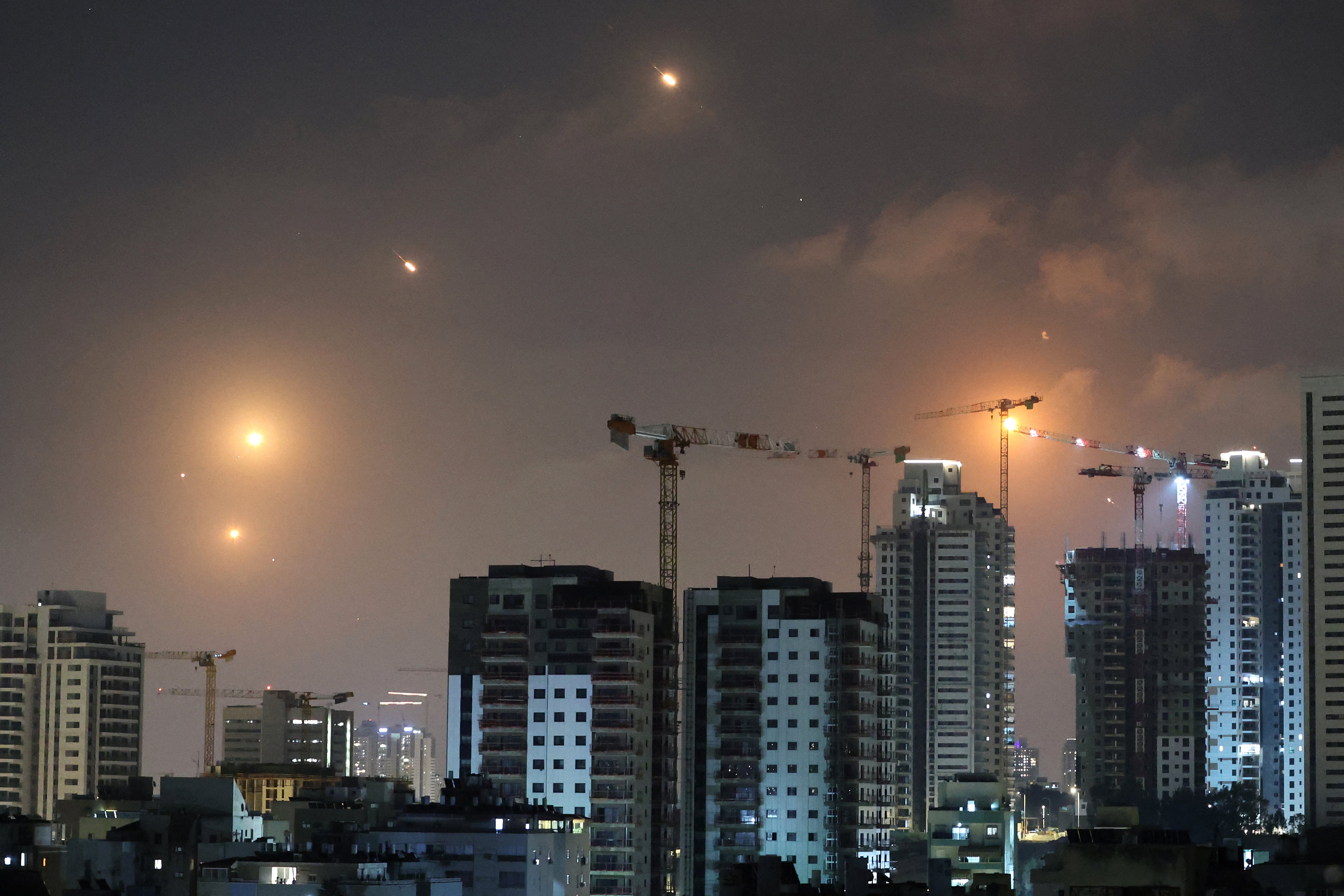
The same concern was echoed by analysts in Syria, where a nascent government led by Islamist fighter turned president Ahmed al-Sharaa is attempting to rebuild the country after ousting Iran-backed autocrat Bashar al-Assad in December.
There are fears that Iran-aligned paramilitaries in Syria still present could use this moment to attack Israel and derail the efforts of the new rebel-led administration.
Israel has repeatedly bombed military positions in Syria since Assad’s overthrow—most recently accusing an unknown group of firing into Israel from Syria just two weeks ago.
US military sites and shipping in the Persian Gulf could also become targets. The UK’s maritime agency warned this week that increased tensions in the Middle East could impact shipping in critical waterways and advised vessels to exercise caution when travelling through the Gulf, the Gulf of Oman, and the Strait of Hormuz, which all border Iran.
In Jordan, meanwhile, the military scrambled to intercept a number of missiles and drones that entered its airspace from Iran and were likely to fall on Jordanian territory, including populated areas.
Iran’s main nuclear enrichment facility at Natanz was damaged in the overnight attack, with the UN’s nuclear watchdog reporting that the above-ground enrichment plant had been destroyed. However, experts reviewing commercial satellite imagery said the damage to Iran’s nuclear infrastructure from the initial wave of Israeli strikes appeared limited.
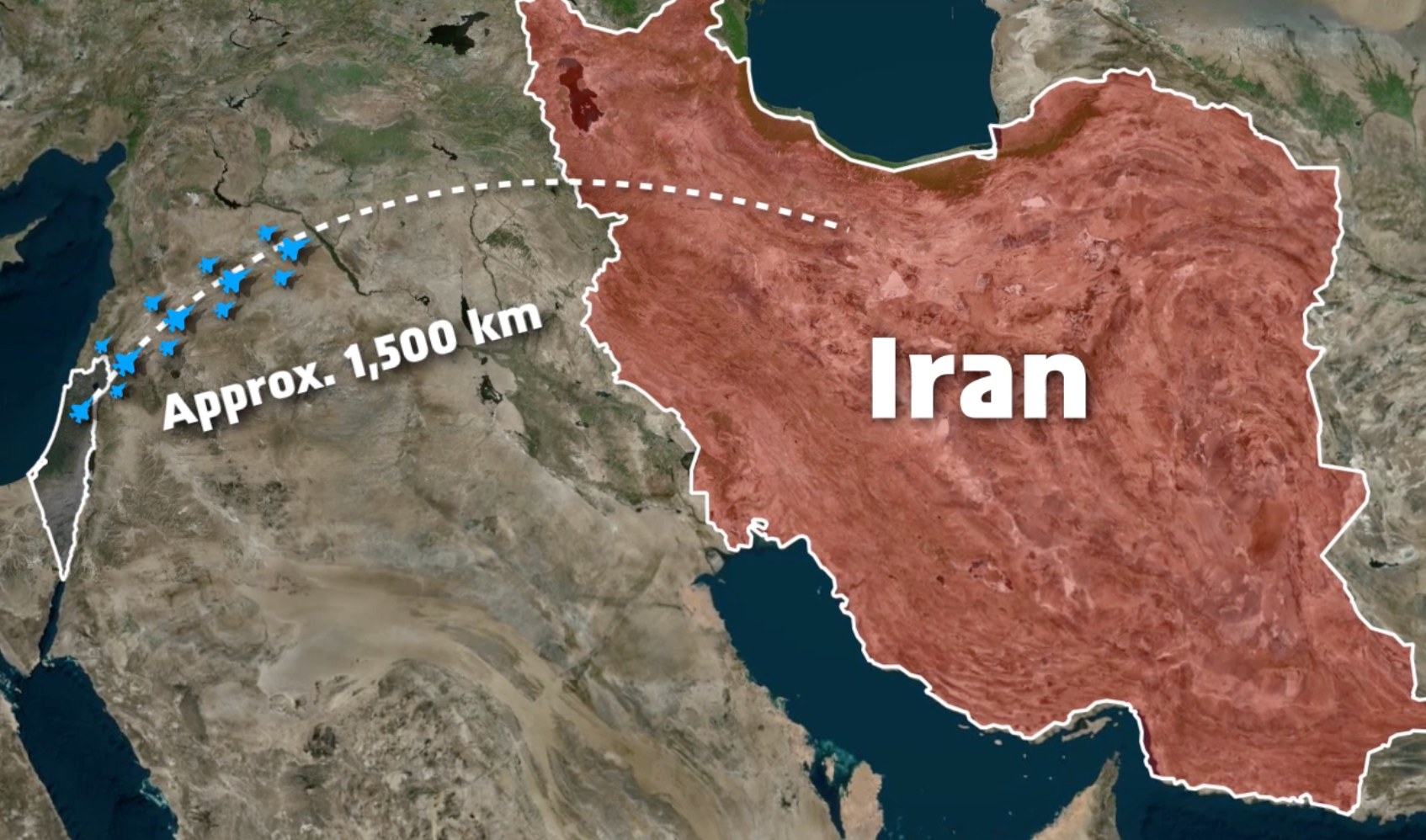
Investigations have not shown any radioactive or chemical contamination outside the site, Iran’s Atomic Energy Organisation said.
Still, the UN’s nuclear watchdog warned that any military action endangering the safety of nuclear facilities carries grave consequences for Iran, the region, and beyond.
Further Israeli strikes were reported on Friday, including on Iran’s military airport in Tabriz and the Shiite holy city of Qom, according to Iran’s semi-official Mehr news agency.
Holly Dagres, an Iran specialist and senior fellow at the Washington Institute, warned “Tehran won’t bend the knee to pressure” .
“President Donald Trump seems to think that these crippling Israeli strikes will force the Islamic Republic to capitulate, when it is a revolutionary state that feeds off of conflict with its adversaries.”


